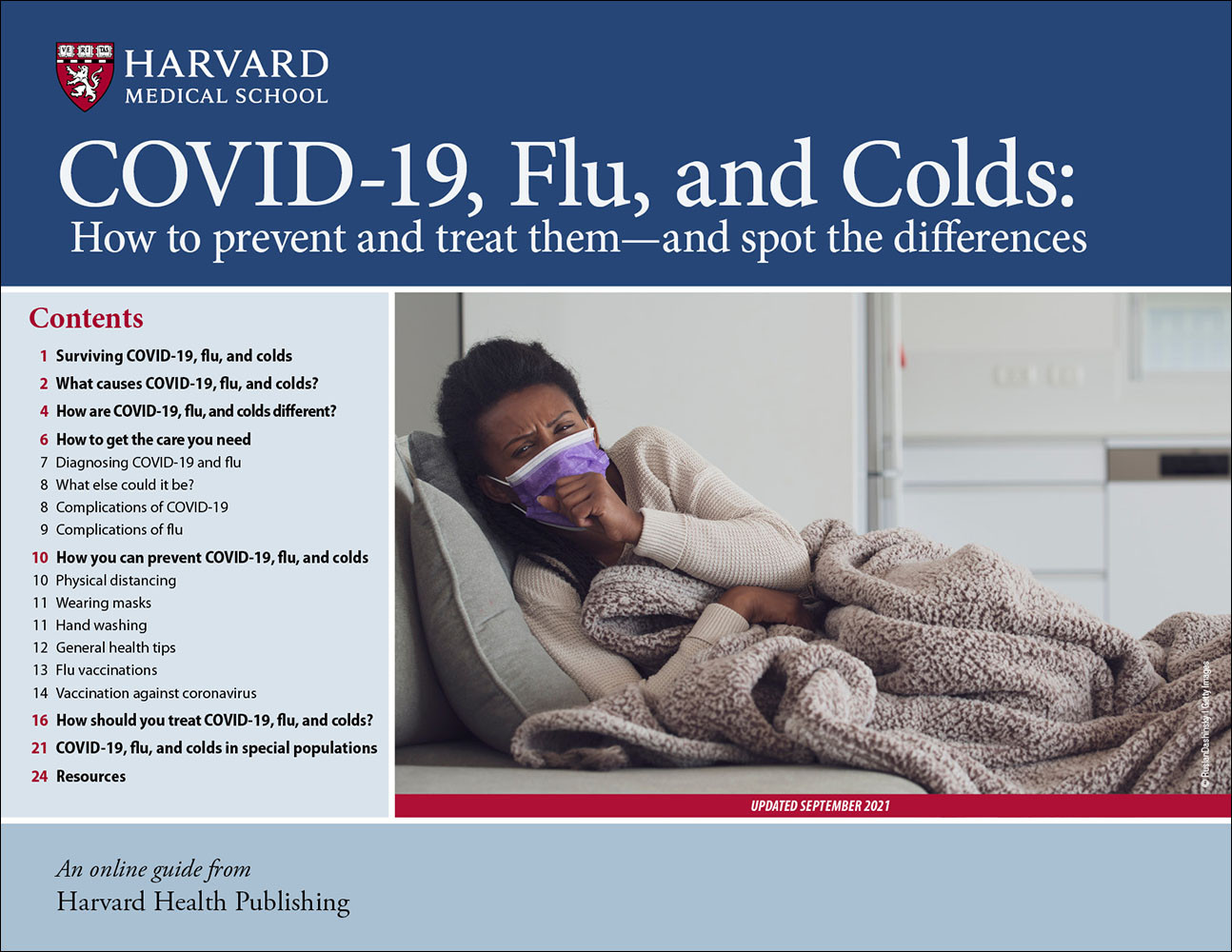Wondering about COVID-19 vaccines if you're pregnant or considering pregnancy?

Across the US, COVID-19 vaccines are widely available for all adults and children ages 5 and older, including people who are pregnant. During pregnancy, vaccinations are a safe and routine part of prenatal care.
The more easily spread Delta variant of COVID-19 drove up rates of illness, hospitalizations, and deaths in the US. Most COVID-19 infections, severe illness, and deaths are occurring among unvaccinated people. Research shows that pregnant people have a higher risk of severe illness if they get COVID-19. And new evidence gathered from tens of thousands of pregnant people demonstrates that COVID-19 vaccines are safe and effective in pregnancy.
If you are pregnant, the US Centers for Disease Control and Prevention (CDC), the American College of Obstetricians and Gynecologists (ACOG), and the Society for Maternal-Fetal Medicine (SMFM) recommend getting an approved COVID-19 vaccine. They also recommend a booster shot if you received the Pfizer/BioNTech or Moderna vaccine at least six months ago, or the Johnson and Johnson vaccine at least two months ago. If you are not yet vaccinated, be sure to take basic measures to protect against the virus, such as frequent handwashing, mask-wearing in public places, and limiting possible exposures.
Here are answers to some questions you may have about getting a COVID-19 vaccine if you're pregnant — or considering pregnancy, soon or in the future. Keep in mind that information will continue to evolve. Your obstetric provider or medical team can advise you more fully about benefits and risks, based on your personal health risks, exposures to the virus that causes COVID-19, and preferences.
For information on breastfeeding and COVID-19, see this blog post.
What do we know about how COVID-19 affects people who are pregnant?
COVID-19 is potentially dangerous for all people. And while the actual risk of severe illness and death among pregnant individuals is low, it is higher when compared to nonpregnant individuals from the same age group. Those who are pregnant are at higher risk for being hospitalized in an intensive care unit and requiring a high level of care, including breathing support on a machine, and are at higher risk for dying if this happens.
If you're pregnant, you may also wonder about risks to the fetus if you get COVID-19. Research suggests that having COVID-19 might increase risk for premature birth, particularly for those with severe illness. So far, studies have not identified any birth defects associated with COVID-19. And while it is possible for the virus to spread from mother to baby during pregnancy, this is rare. Most often it is linked to having COVID infection two weeks before birth.
Which vaccines are authorized?
- The Pfizer/BioNTech vaccine is authorized for ages 5 and older.
- Moderna or Johnson and Johnson vaccines are authorized for ages 18 and older through emergency use authorization from the FDA.
All three vaccines help the immune system block the virus that causes COVID-19. This can be done in different ways:
- Two-dose Pfizer/BioNTech vaccine: this vaccine uses mRNA.
- Two-dose Moderna vaccine: this vaccine uses mRNA.
- One-dose Johnson and Johnson vaccine: this vaccine uses a harmless, modified form of the common cold virus in humans called an adenovirus.
Do COVID-19 vaccines effectively protect pregnant people?
Broad studies show these vaccines are extremely effective in reducing risk for severe illness, hospitalizations, and deaths from COVID-19. They also help reduce risk for moderate illness. So, while some people who are fully vaccinated may still get COVID-19, they usually are protected against serious illness and death.
Whether a vaccinated person is pregnant or not pregnant, research shows the immune response is similar. Immune response from the vaccine is better than the response achieved through a natural infection with the virus.
Booster shots further increase the effectiveness of the vaccines. Ask your doctor if you need a booster shot.
You can read more about the different vaccines on the Harvard Health Coronavirus Resource Center.
Are the vaccines safe for people who are pregnant?
Evidence on the safety and effectiveness of COVID-19 vaccines during pregnancy is growing, according to the CDC. A new report on early data from safety monitoring systems that gather information on people who were pregnant when vaccinated and their babies finds no concerns about safety. Another report based on people enrolled in the v-safe COVID-19 Pregnancy Registry who received COVID-19 vaccines before 20 weeks of pregnancy notes no increased risk for miscarriage.
The CDC continues to follow people vaccinated during different trimesters of pregnancy to better understand effects on pregnancy and babies.
Important points about mRNA vaccines
- When studied during animal tests, the mRNA vaccines did not affect fertility or cause any problems with pregnancy.
- In humans, we know that other kinds of vaccines generally are safe for use in pregnancy — in fact, many are recommended.
- mRNA vaccines do not contain any virus particles.
- mRNA particles used in the vaccine are eliminated by our bodies within hours or days, so these particles are unlikely to reach or cross the placenta.
- The immunity that a pregnant person generates from COVID-19 vaccination can cross the placenta, and may help keep the baby safe after birth.
Important points about the Johnson and Johnson vaccine
- The modified adenovirus used in the vaccine can't replicate or cause illness. The body quickly clears it from the injection site, so it's unlikely to reach or cross the placenta.
- In animal tests, this vaccine did not affect fertility or cause problems with pregnancy.
- Vaccines similar to this one — called adenovirus vector vaccines — have been studied in humans for HIV, Ebola, and Zika virus. Trials that enrolled pregnant people reported no harmful pregnancy outcomes.
- We know that other kinds of vaccines generally are safe for use in pregnancy — in fact, many are recommended. The immunity that a pregnant person generates from vaccination can cross the placenta, and may help keep the baby safe after birth.
What are the common vaccine side effects?
Common side effects include pain at the injection site, muscle aches, and tiredness. Fever for a day or two after vaccination is also possible, occurring in about
- 1% to 3% of people after the first dose of mRNA vaccine
- 15% to 17% after the second dose of mRNA vaccine
- 9% after the Johnson and Johnson single-dose vaccine.
Fevers are generally low. Acetaminophen (Tylenol) is safe to take to bring down a fever during pregnancy. Rarely, high, prolonged fevers in pregnancy may lead to birth defects.
What are the rare vaccine side effects?
Blood clots with low platelets (thrombosis with thrombocytopenia syndrome, or TTS) has occurred in nine out of one million people who received the Johnson and Johnson vaccine. No cases have been reported in people who were pregnant, even though most cases of this rare condition occur in people of reproductive age. Warning signs include severe headache, changes in vision, abdominal pain, nausea and vomiting, back pain, shortness of breath, leg pain or swelling, easy bruising, or bleeding within six to 14 days of the vaccination. Call your doctor or seek medical help if you experience these symptoms.
Heart inflammation (myocarditis and pericarditis) may occur after the Pfizer/BioNTech and Moderna vaccines. This rare side effect has mostly affected male teens and young adults, usually after a second dose. No cases have been reported in people who were pregnant.
For more information about common and rare COVID vaccine side effects, see this CDC resource page.
If you're thinking of becoming pregnant soon or in the future
Many people who are considering a pregnancy soon or in the future wonder if the COVID-19 vaccines affect fertility. However, there's no evidence that they do, according to ACOG and SMFM. While human vaccine trials did not specifically study fertility, no signs of infertility were noted in animal studies, or reported among people of reproductive age who have been vaccinated worldwide.
Getting vaccinated prior to pregnancy is a great way to ensure that you — and your pregnancy — are protected.
How can you stay informed?
Check trusted health websites, such as sites included in this post, and talk with your healthcare providers. Together you can balance the latest data on risks of COVID-19 in pregnancy, the safety of available vaccines, your individual risk factors and exposures, and most importantly, your values and preferences.
Additional resources
ACOG and SMFM Recommend COVID-19 Vaccination for Pregnant Individuals. American College of Obstetricians and Gynecologists.
Coronavirus (COVID-19), Pregnancy, and Breastfeeding: A Message for Patients. American College of Obstetricians and Gynecologists.
COVID-19 Vaccines While Pregnant or Breastfeeding. Centers for Disease Control and Prevention.
About the Author

Ilona T. Goldfarb, MD, MPH, Contributor
Disclaimer:
As a service to our readers, Harvard Health Publishing provides access to our library of archived content. Please note the date of last review or update on all articles.
No content on this site, regardless of date, should ever be used as a substitute for direct medical advice from your doctor or other qualified clinician.
















